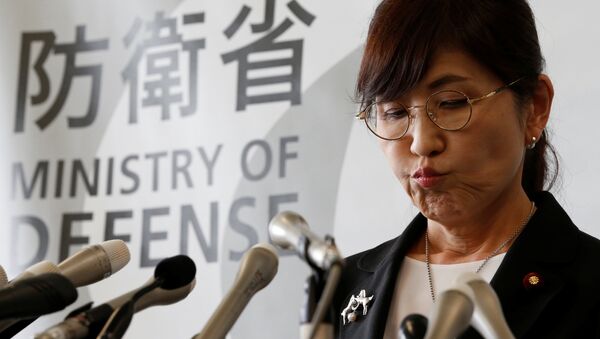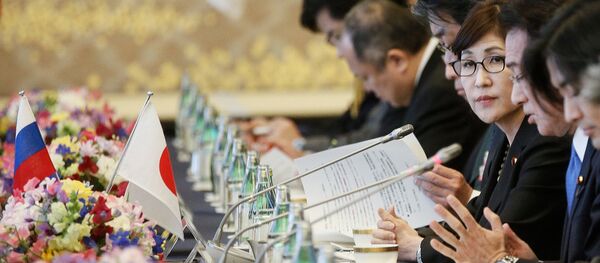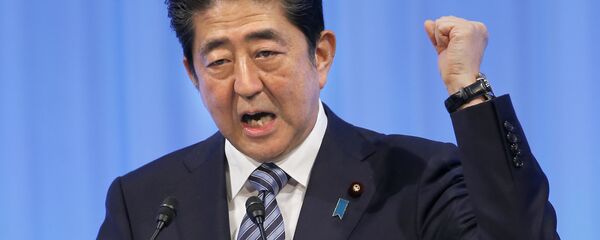In May, Japan completed the withdrawal of its ground troops, known as the Self-Defense Force (SDF), from South Sudan. The official reason Japanese authorities offered for the decision to pull out its soldiers was that they have already made a significant contribution in South Sudan since November 2011, by repairing more than 200 kilometers [124 miles] of road and turning an area of about 500,000 square meters [123 acres] into usable land.
Critics claim constitutional restrictions on Japanese soldiers using force overseas were the key factor led to the withdrawal of SDF troops from South Sudan, where deteriorating situation may force Japanese troops to use deadly forces to protect themselves. As a legacy of World War II, Japan adopted a constitution that prohibits its troops from using force to settle international disputes.
As the situation in South Sudan continued to descend into a possible all-out civil war, Japan’s decision to withdraw its troops dealt a blow to the UN mission in the war-torn African nation, which relied heavily on UN peacekeeping efforts since it became independent in 2011.
Experts told Sputnik that Japan’s case was a perfect example of how domestic politics and legal restrictions could influence a country’s participation of UN peacekeeping missions.
"Countries decide whether they can contribute to peacekeeping, firstly on domestic policy and availability. The United Nations has to take that into consideration whether to accept the offer from a particular country to contribute to peacekeeping operations," Cedric de Coning, a senior research fellow in the Peace and Conflict Research Group at the Norwegian Institute of International Affairs and a senior adviser on Peacekeeping and Peacebuilding for the African Center for the Constructive Resolution of Disputes in South Africa, told Sputnik.
The South Africa-based expert pointed out that, before domestic laws were changed, Japan could only provide staffs for hospitals and engineers for UN peacekeeping missions and would need forces from other countries for protection.
To better protect civilians in escalating military conflicts such as the situation in South Sudan, de Coning suggested the United Nations is better off by dispatching troops from countries that are willing to take stronger actions.
"In situations like South Sudan, where you want the protection force to take a strong action and really step in to protect civilians in an ongoing conflict or in a very volatile situation, countries like Japan with no interests in the region would not be willing to do that. Other countries in the region that have a stake in resolving the conflict would be more willing to allow their soldiers to use force to protect civilians," he said.
De Coning gave an example that South Korean peacekeeping forces in South Sudan had to borrow 10,000 rounds of ammunition from Japan’s SDF troops, after the military conflicts in the region escalated in December 2013.
FUNDAMENTAL CHANGE IN UN PEACEKEEPING
As situations on the ground can change drastically over a short period of time, the United Nations may need to rethink its traditional strategy or framework on peacekeeping missions to achieve better results, experts told Sputnik.
"Traditional peacekeeping was deployed to maintain an agreement, when both parties of the conflict agreed to stop fighting. But increasingly, you don’t have that peace to keep. There has to be a complete new approach to UN intervention," Charles Petrie, former UN assistant secretary general and a member of the Group of Experts designated by former Secretary General Ban Ki-moon to review UN peace-building efforts, told Sputnik.
Petrie suggested that it has to be a new political approach, because using the existing peacekeeping template serves no purpose.
"Look at the peacekeeping mission in Congo that has been going on for decades and what it has been able to accomplish. There needs to be a profound rethink, which includes refocusing the peacekeeping on the politics of the conflict," Petrie noted.
The former UN official argued that the UN peacekeeping mission in South Sudan was only able to protect less than 10 percent of the most vulnerable.
"Aren’t we asking the troops to perform tasks that are impossible? It would demand a level of investment and war-fighting beyond the mandates that are given. It would go against the appetite and risks individual countries are willing to take," Petrie stated.
The UN expert stressed that it was important to completely redefine the mission and the mandate and rethink how an UN intervention can actually have an impact on the conflict.
"That is no longer a question of tweaking or working on the margins. You need to conceptually rethink the UN peacekeeping," he said.
ACCOUNTABILITY NEEDED
According to media reports, dozens of ethnic Nuer women and girls were raped by soldiers outside a United Nations camp in South Sudan’s capital Juba in July 2016, while armed UN peacekeepers looked on and failed to intervene.
Human rights advocates told Sputnik that perpetrators of such attacks should be held responsible for their actions to ensure the integrity the UN peacekeeping mission.
"What can be done to make sure peacekeepers don’t lose their lives unnecessarily is to make sure when governments or armed groups continually obstruct the mission or even attack the mission, there will be consequence," Akshaya Kumar, the deputy UN director at Human Rights Watch, told Sputnik.
Kumar recalled that there were people on behalf of the United Nations who lost their lives in Syria, South Sudan, Congo or the Central African Republic.
"Unfortunately, far too little is done in the way of accountability or justice to hold the perpetrators responsible for those kinds of crimes. That’s why they feel like they can operate in a world of impunity," Kumar said.
Nevertheless, the New York-based rights advocate believes UN peacekeepers need to uphold the promise they made when they signed up for the UN mission.
"It is the promise peacekeepers make when they deploy, which is: even though they’re there to protect people who don’t hold the same passport as them and don’t look like them or speak the same language, they still traveled from their home country in service of the broader good," Kumar emphasized.
She added that it was the role of the peacekeepers to go toward the danger, not run away from it.
According to a report on the situation in South Sudan released by Human Rights Watch, over one million civilians have fled into neighboring countries in the past year alone, with more than 700,000 crossed into Uganda.




